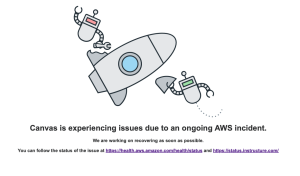Turning punctuality into actuality is not so easy
November 6, 2015
Freshman year I was chronically late to advisory. The bell would ring at 7:55 A.M., but I would get to class no earlier than 7:58 A.M. Was it my fault entirely? My locker was at least a mile away and it was conveniently close to my friend’s locker as well (I’m notoriously chatty).
So yes, it was.
Being late is something we can put an end to. Yes, showing up to a party “fashionably late” is still acceptable. An important meeting or job interview on the other hand, is just rude.
Arriving ten minutes late has its repercussions. For one thing, you’ll inevitably receive judgmental looks. They’re not checking out your outfit, which probably caused you to be late in the first place.
Your parents, boss, and teachers are giving you this stare that says, ‘Who do you think you are wasting my time?’ These people waiting on you don’t even notice that you’re out of breath and sweating. All sympathy is lost.
Consequence number two: you have created a somewhat negative reputation for yourself. Now, people can’t rely on you or trust you to ‘be there.’ If you think your best friend has you listed under “emergency contact,” you’re wrong.
The question still remains: why are people late? In a Huffington Post article, Diana DeLonzor, author of “Never Be Late Again,” wrote about chronic tardiness being heavily related to psychological components.
Typically, someone who is repeatedly late may be prone to anxiety, have low self-control, or have a tendency towards thrill-seeking.
“One of the things I found is that some people were subconsciously drawn to the adrenaline rush of that last minute sprint to the finish line,” DeLonzor said.
Is the reason we’re constantly late because we need to feel motivated by pressure in order to achieve a goal?
I find that this is relevant when tasked with homework: I complete my assignments at a speedier pace when I know I only have 45 minutes.
Some people argue that this way of working is less accurate, that is, I would be more likely to get the wrong answer.
However, when I set a timer, I know that I won’t be late for my next activity; sometimes promptness is a higher priority.
Another reason may be that people poorly plan activities. If you find yourself arriving late to the next coffee date, for example, try timing yourself to see how long it takes to move from point A to B. If you stop the timer at 32 minutes, allot yourself 35 minutes next time.
In theory, scheduling is meant to help organize you, but it may be the reason you’re constantly making people wait. Over-scheduling is, in fact, another layer of the chronically late person.
DeLonzor further explained how “the producer” is someone who will try to accomplish a handful of engagements all within a short period of time.
Clearly, people have their reasons for being late. Common excuses may be traffic, the weather, or those providing the ride to and from. But the underlying reasons are much more complex.












































